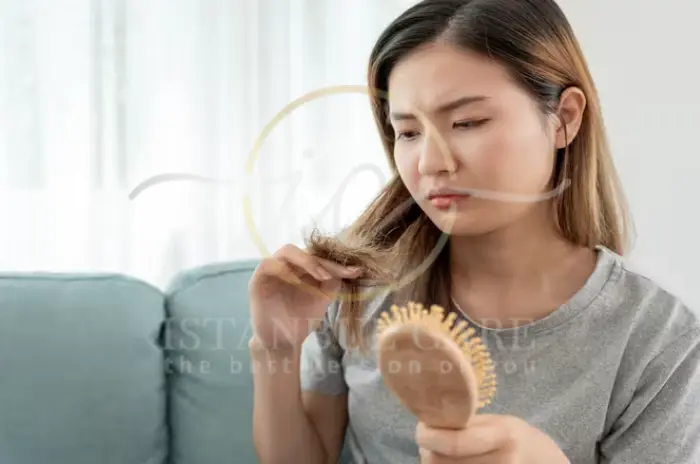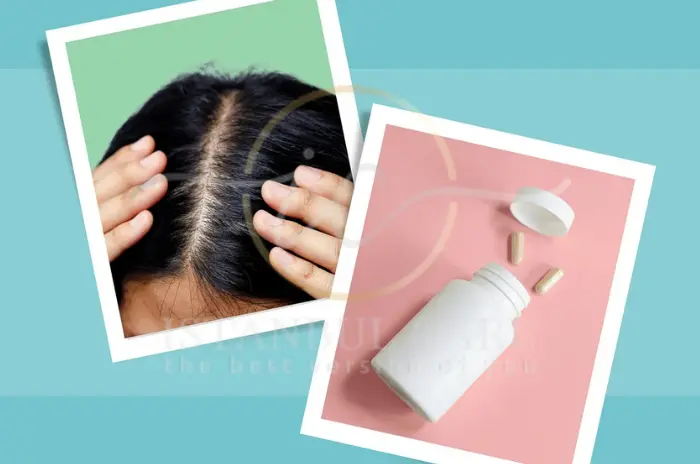Hair loss and thinning can be a source of concern for many individuals, leading them to explore various treatment options. Among the most popular supplements discussed for hair health is biotin, a B-vitamin that has gained significant attention in recent years. This comprehensive guide examines the relationship between biotin and hair growth, answering the common question does biotin help hair growth and helping you understand whether this supplement might be beneficial for your hair health journey.

Understanding Biotin and Its Role in Hair Health
Biotin, also known as vitamin B7 or vitamin H, is a water-soluble vitamin that plays a crucial role in various metabolic processes throughout the body. This essential nutrient is particularly important for the health of hair, skin, and nails, which is why it has become a popular ingredient in beauty supplements.
The human body requires biotin for several key functions:
- Energy metabolism: Converting carbohydrates, fats, and proteins into usable energy
- Gene regulation: Supporting proper DNA function and cell division
- Nervous system function: Maintaining healthy nerve cells and neurotransmitter activity
- Keratin synthesis: Producing the protein that forms the structure of hair, skin, and nails
Hair follicles are among the most rapidly dividing cells in the human body, making them particularly dependent on adequate biotin levels. When biotin deficiency occurs, hair may become brittle, thin, or begin to fall out more readily than normal.
Most people obtain sufficient biotin through their regular diet, as it's found in various foods including eggs, nuts, seeds, fish, and leafy greens. However, certain factors such as pregnancy, genetics, or specific medical conditions can increase biotin requirements or affect absorption.
How Biotin Contributes to Stronger Hair Strands
Biotin's primary mechanism for supporting hair health lies in its role as a cofactor for several important enzymes involved in fatty acid synthesis and amino acid metabolism. These processes are fundamental to creating strong, healthy hair strands from the follicle level.
Key mechanisms include:
Protein synthesis enhancement: Biotin supports the production of amino acids that form the building blocks of hair proteins, particularly cysteine, which is essential for hair strength and elasticity.
Improved follicle function: Adequate biotin levels help maintain the health of hair follicles, potentially extending the growth phase of the hair cycle and reducing premature shedding.
Enhanced nutrient utilization: Biotin helps the body more effectively process other nutrients important for hair health, including zinc, iron, and other B-vitamins.
| Hair Strand Component | Biotin's Role | Impact on Hair Quality |
|---|---|---|
| Keratin protein | Supports amino acid metabolism | Increased strength and elasticity |
| Hair shaft structure | Aids in proper protein formation | Reduced breakage and splitting |
| Follicle health | Enhances cellular metabolism | Improved growth cycle |
| Moisture retention | Supports lipid synthesis | Better hair texture and shine |
Research suggests that individuals with adequate biotin levels tend to have hair that is more resistant to environmental damage and mechanical stress. This translates to reduced breakage, less splitting, and an overall improvement in hair appearance and manageability.
The Science Behind Biotin and Keratin Production
Keratin, the primary structural protein in hair, requires specific conditions and nutrients for optimal production. Biotin plays a fundamental role in this process by supporting the enzymatic reactions necessary for keratin synthesis.
The relationship between biotin and keratin production involves several complex biochemical pathways:
Acetyl-CoA carboxylase activation: Biotin serves as a cofactor for this enzyme, which is essential for fatty acid synthesis. These fatty acids are incorporated into the cellular membranes of hair follicles, supporting healthy keratin production.
Propionyl-CoA carboxylase function: This biotin-dependent enzyme helps process certain amino acids that become incorporated into keratin structures, affecting hair strength and flexibility.
Methylcrotonyl-CoA carboxylase activity: Another biotin-requiring enzyme that processes leucine, an amino acid important for keratin formation and hair growth signaling pathways.
Studies conducted by various intermediary organizations have shown that biotin deficiency can lead to measurable changes in keratin structure, resulting in weaker hair that is more prone to damage. Conversely, ensuring adequate biotin intake supports optimal keratin production, leading to stronger, more resilient hair strands.
The timeline for seeing improvements in keratin-related hair quality typically ranges from 3-6 months, as this represents the time needed for new hair growth to replace older, potentially damaged strands.
The Realistic Benefits of Biotin for Thinning Hair
While biotin supplementation has shown promise for hair health, it's important to maintain realistic expectations about its potential benefits. The effectiveness of biotin for thinning hair largely depends on the underlying cause of hair loss and individual biotin status.
Documented benefits include:
- Improved hair texture: Many users report softer, more manageable hair after consistent biotin supplementation
- Reduced breakage: Stronger hair strands are less likely to break during styling or daily activities
- Enhanced growth rate: Some individuals experience faster hair growth, though results vary significantly
- Better overall hair health: Biotin can contribute to shinier, healthier-looking hair
However, biotin supplementation may be most beneficial for specific groups:
- Individuals with biotin deficiency: Those with documented low biotin levels are most likely to see dramatic improvements
- People with genetic predisposition: Some individuals have genetic variations that increase biotin requirements
- Those with absorption issues: Certain medical conditions or medications can interfere with biotin absorption
| Benefit Category | Expected Timeline | Likelihood of Success |
|---|---|---|
| Reduced breakage | 4-8 weeks | High (if deficient) |
| Improved texture | 6-12 weeks | Moderate to high |
| Faster growth | 3-6 months | Variable |
| Thickness increase | 6-12 months | Low to moderate |
It's crucial to understand that biotin alone cannot reverse genetic hair loss patterns such as male or female pattern baldness. For these conditions, consultation with healthcare professionals through an intermediary organization specializing in hair restoration may be more appropriate.

Potential Side Effects of Biotin Supplements
While biotin is generally considered safe due to its water-soluble nature, supplementation can potentially cause side effects, particularly at high doses. Understanding these potential risks is essential for making informed decisions about biotin supplementation.
Common side effects may include:
Skin reactions: Some individuals may experience acne breakouts, particularly on the chin and jawline, when taking high-dose biotin supplements. This occurs because biotin can affect the absorption of other B-vitamins, potentially disrupting skin health.
Laboratory test interference: High biotin levels can interfere with certain blood tests, including thyroid function tests and cardiac markers. This interference can lead to falsely elevated or decreased results, potentially affecting medical diagnoses.
Digestive issues: Although rare, some people may experience mild stomach upset, nausea, or digestive discomfort when starting biotin supplementation.
Allergic reactions: While uncommon, allergic reactions to biotin supplements can occur, particularly in individuals with sensitivities to B-vitamins or supplement fillers.
Dosage considerations:
| Dosage Range | Purpose | Risk Level |
|---|---|---|
| 30-100 mcg | Daily maintenance | Very low |
| 100-300 mcg | Mild deficiency | Low |
| 1,000-5,000 mcg | Therapeutic use | Moderate |
| 10,000+ mcg | High-dose therapy | Higher risk |
To minimize potential side effects, it's recommended to start with lower doses and gradually increase if needed. Consulting with healthcare professionals through an intermediary organization can help determine the most appropriate dosage for individual needs.
Who May Benefit from Biotin for Thinning Hair
Biotin supplementation is not universally beneficial for all types of hair loss. Understanding who is most likely to benefit can help set appropriate expectations and guide decision-making about supplementation.
Primary candidates for biotin supplementation include:
Individuals with confirmed biotin deficiency: This group is most likely to experience significant improvements in hair health. Biotin deficiency can result from:
- Poor dietary intake
- Gastrointestinal disorders affecting absorption
- Certain medications
- Pregnancy and breastfeeding
- Genetic factors affecting biotin metabolism
People with brittle or easily damaged hair: Those experiencing excessive breakage, splitting, or fragile hair may benefit from biotin's role in strengthening hair structure.
Individuals with nutritional deficiencies: People with overall poor nutrition or restrictive diets may have multiple nutrient deficiencies that affect hair health, including biotin.
Those with certain medical conditions: Some health conditions can increase biotin requirements or affect its metabolism:
- Diabetes
- Kidney disease
- Liver disorders
- Inflammatory bowel conditions
Groups who may see limited benefits:
- Individuals with androgenetic alopecia (male/female pattern baldness)
- People with adequate biotin levels
- Those with hair loss due to hormonal imbalances
- Individuals with autoimmune hair loss conditions
Working with healthcare professionals through an intermediary organization can help identify whether biotin supplementation is appropriate and likely to be beneficial for specific hair concerns.
Why Hyaluronic Acid and Biotin Work Better Together
The combination of hyaluronic acid and biotin represents a synergistic approach to hair health that addresses multiple aspects of hair growth and maintenance. While biotin focuses on structural protein synthesis, hyaluronic acid contributes to scalp health.
Complementary mechanisms:
Biotin's contributions:
- Supports keratin production
- Enhances protein synthesis
- Improves follicle metabolism
- Strengthens hair structure
Hyaluronic acid's benefits:
- Maintains scalp hydration
- Supports healthy follicle environment
- Improves nutrient delivery
- Reduces scalp inflammation
The synergistic effects include:
Enhanced scalp environment: Hyaluronic acid maintains optimal moisture levels, creating a better environment for biotin-supported hair growth processes.
Improved nutrient delivery: A well-hydrated scalp allows for better circulation and nutrient transport to hair follicles.
Comprehensive support: While biotin works on structural aspects, hyaluronic acid addresses environmental factors influencing hair growth.
| Combination Benefit | Biotin's Role | Hyaluronic Acid's Role |
|---|---|---|
| Stronger strands | Protein synthesis | Moisture balance |
| Healthier scalp | Follicle metabolism | Hydration |
| Improved growth | Nutrient utilization | Better circulation |
| Reduced breakage | Structural support | Environmental protection |
Many intermediary organizations now recommend this combination for comprehensive hair health support, addressing both biochemical and environmental factors.
We’re ready to answer your questions
Biotin improves hair strength by serving as a cofactor for enzymes involved in keratin production. It supports amino acid creation that forms hair's structural foundation, particularly cysteine, which contributes to elasticity and breakage resistance.
Yes, biotin supplements can cause side effects at high doses. Common effects include skin breakouts, interference with blood tests, and mild digestive upset. These are more likely with doses exceeding 1,000 mcg daily.
Results vary by individual. Reduced breakage may appear within 4-8 weeks, improved texture after 6-12 weeks, and significant growth changes may take 3-6 months, reflecting the natural hair growth cycle.
Biotin supplements benefit those with confirmed deficiency, brittle hair, poor nutrition, or certain medical conditions affecting biotin metabolism. People with adequate levels or genetic hair loss may see limited benefits.
Follow us on social media for updates, tips, and patient success stories:

